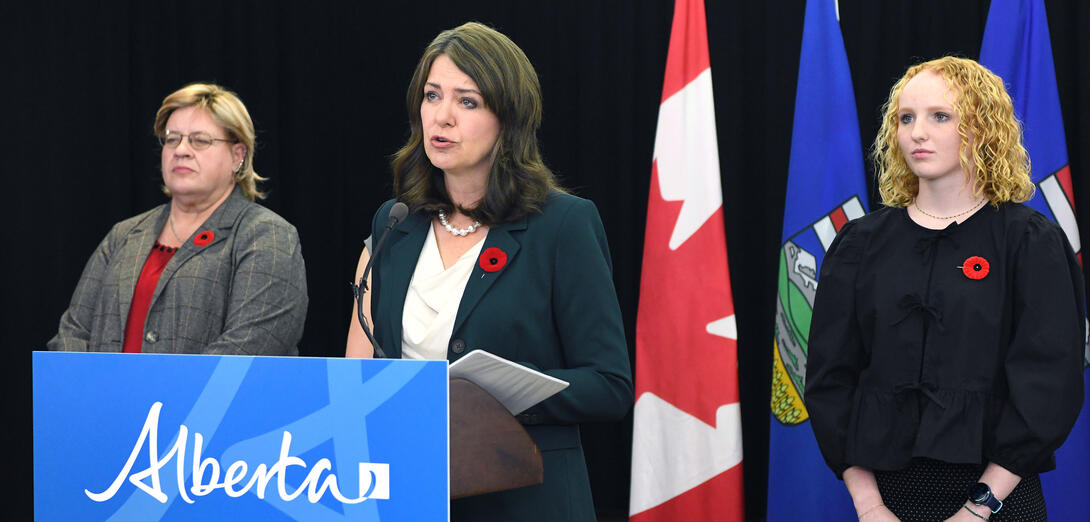Education was on the minds of the United Conservative Party (UCP) as it held its annual general meeting (AGM) on November 2, 2024, in Red Deer, Alberta.
Addressing approximately 6,000 attendees, Premier Danielle Smith — who received an overwhelming 91.5 per cent approval from party members in a leadership review — delivered a keynote speech that touched on key issues such as healthcare, energy policy and education. The premier unveiled a series of ambitious education policies aimed at reshaping Alberta’s educational landscape.
One of Smith’s key announcements was the government’s massive school construction initiative, which she described as the largest in Alberta’s history. The plan aims to build new schools across the province to accommodate growing student populations and improve access to quality education.
“Every child in Alberta deserves a modern, safe and inspiring place to learn,” said Smith.
Smith also emphasized the importance of parental choice and accountability in education, signaling a significant shift in the province’s approach to schooling.
While policies passed at the UCP AGM are not guaranteed to become provincial legislation, this year’s meeting saw several resolutions closely resembling the direction the government has recently taken in the legislature.
Bill 27, the Education Amendment Act, 2024, which was introduced on October 31, mirrors several of the resolutions put forward at the UCP AGM that are outlined below.
Require teachers and school boards to obtain opt-in informed written consent from the parent(s) of a student to any instance when a teacher provides formal, informal, or incidental instruction or extracurricular activities on subject matter involving sexuality, sexual orientation and gender identity. At the parent’s written request, the teacher of the student shall permit the student to leave the classroom without academic penalty or other censure.
Require that all third-party resource materials or presentations related to gender identity, sexual orientation, or human sexuality available in Alberta classrooms be pre-approved by the ministry of education.
Maintain and defend its constitutionally mandated jurisdictional authority over all decisions affecting Albertans regarding provincial, national or international emergencies, treaties or other agreements. This includes but is not limited to medical, financial, economic, security, natural resources, education, safety, and social issues and circumstances. Provincial authority may include a variety of communications, actions, responses, treatments, procedures, rules, regulations, fees, taxes, policies, protocols, legislation or mandates of any kind.
Two other resolutions dealing with education and the teaching profession also made it to the floor:
Advocate and champion the skilled trades and professions by integrating the journeyperson and apprenticeship skilled trades education track within the grade 7–12 education system.
Make membership in the Alberta Teachers’ Association optional for all teachers employed in public, separate, Francophone, charter and independent schools in Alberta and ensure comparable supports, benefits and pension opportunities are available for those who opt out.
Delegates also overwhelmingly passed a resolution to address the use of cell phones in schools, which closely resembled a set of standards that was introduced by Education Minister Demetrios Nicolaides in mid-June and came into effect on September 1.
All of the 35 resolutions put before the delegates were passed. Each one received overwhelming support with the notable exception of two: the resolution calling on the government to implement Smith’s promised income tax cut, and the resolution calling for an opt-in system for sex education. While these were still approved and a ballot count was not necessary, these two policies did not receive the same enthusiastic approval as the others. ❚


